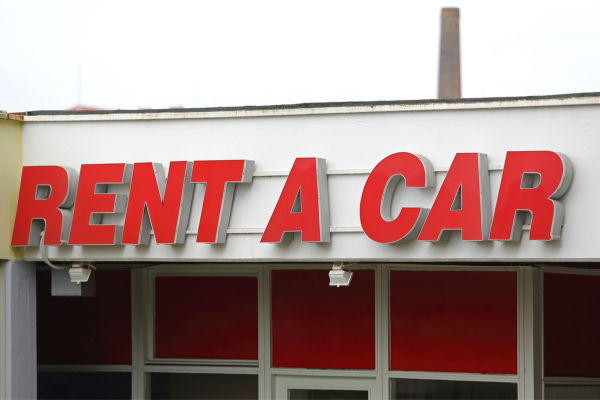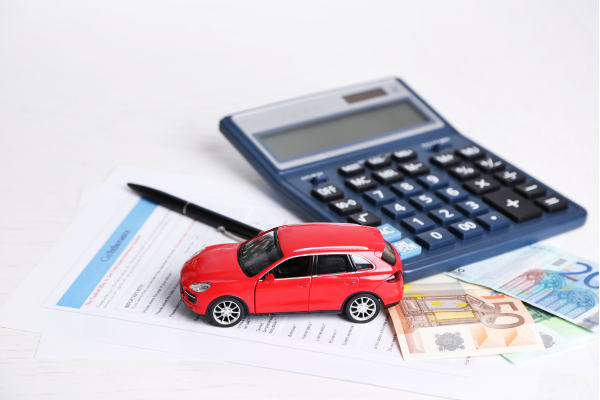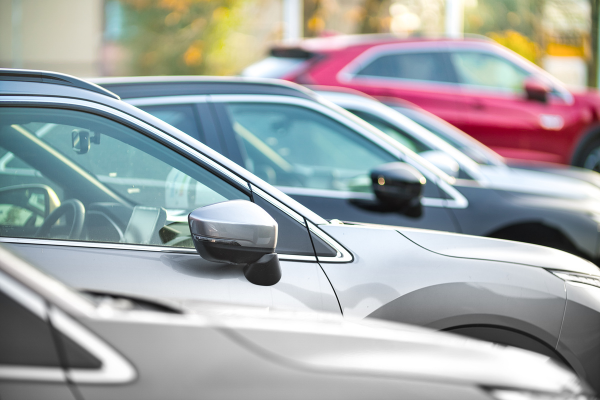Renting a Car in Germany: What You Need to Know

Renting a car in Germany can be a convenient and flexible way to explore the country, whether you’re on vacation, need a temporary vehicle, or require a car for business purposes. However, there are several important factors to consider before renting a car, including the options available, insurance considerations, and restrictions on driving outside the EU.
Outline:
Overview of Car Rental Options
Restrictions on Driving Rental Cars Outside the EU
Insurance Considerations for Rental Cars
Tips for Booking and Using Rental Cars
Navigating German Roads with a Rental Car
Overview of Car Rental Options
When it comes to renting a car in Germany, you have a wide range of options:
Major Car Rental Companies in Germany
Germany is home to several major car rental companies, including international brands and local providers:
- Sixt: A well-known German company offering a wide range of vehicles, from economy to luxury models.
- Europcar: Another popular choice, known for its extensive network across Europe.
- Hertz: An international brand with a strong presence in Germany.
- Avis and Budget: Both offer a variety of vehicles at competitive prices, with locations throughout the country.
These companies provide convenient services at airports, train stations, and city centers, making it easy to pick up and drop off your rental car.
Types of Vehicles Available for Rent
Depending on your needs, you can choose from a variety of vehicles:
- Economy Cars: Ideal for city driving and short trips.
- Compact and Mid-Size Cars: A good balance of comfort and fuel efficiency for longer drives.
- Luxury Vehicles: For those looking to travel in style.
- SUVs and Vans: Suitable for families or groups with more luggage or those planning to travel in mountainous regions.
- Electric and Hybrid Cars: An eco-friendly option for environmentally conscious travelers.
How to Choose the Right Rental Car Based on Your Needs
When choosing a rental car, consider the following factors:
- Trip Duration: For short trips, an economy car might suffice, while longer journeys may require a more comfortable vehicle.
- Luggage Space: Ensure the car has enough space for your luggage, especially if traveling with family or friends.
- Fuel Efficiency: Consider a fuel-efficient car if you plan to cover long distances.
- Driving Terrain: If you plan to drive in rural or mountainous areas, an SUV might be more suitable.
Short-Term vs. Long-Term Rentals
Car rental companies offer both short-term and long-term rental options:
- Short-Term Rentals: Ideal for vacations or weekend trips, usually ranging from a few hours to a few days.
- Long-Term Rentals: Suitable for those needing a vehicle for several weeks or months. Some companies offer discounted rates for long-term rentals.
Typical Rental Costs and What Affects Pricing
Rental costs can vary based on several factors:
- Vehicle Type: Luxury cars and SUVs are more expensive than economy models.
- Rental Duration: Longer rentals often come with a lower daily rate.
- Location: Renting from airports can be more expensive due to additional fees.
- Season: Prices may increase during peak travel seasons or holidays.
- Additional Services: Extras like GPS, child seats, or additional drivers will increase the overall cost.
Restrictions on Driving Rental Cars Outside the EU
When renting a car in Germany, it’s essential to be aware of the restrictions on where you can drive the vehicle:
Limitations on Where You Can Drive a Rental Car
Many car rental agreements restrict driving outside the EU, particularly in non-EU countries:
- Switzerland: Although geographically close, Switzerland is not part of the EU, and some rental agreements may prohibit driving there.
- Eastern Europe: Some rental companies restrict driving in countries like Poland, Hungary, and the Czech Republic due to higher insurance risks.
Countries with Specific Restrictions
- Switzerland: Some rental cars are not allowed to be driven into Switzerland due to insurance limitations. Always check with your rental company before crossing the border.
- Non-EU Countries: Driving into non-EU countries like Serbia, Montenegro, or Ukraine is often restricted, and you may need special permission or insurance coverage.
Risks and Penalties of Violating Rental Agreements
Driving in restricted areas can lead to severe penalties:
- Void Insurance: Your insurance may not cover damages or theft if you’re driving in a prohibited country.
- Fines and Fees: The rental company may impose fines or additional fees if you violate the agreement.
- Vehicle Confiscation: In extreme cases, the car could be confiscated at the border.
How to Find Out About Restrictions Before Renting
- Read the Terms and Conditions: Always review the rental agreement carefully to understand any geographical restrictions.
- Ask the Rental Company: If you’re unsure, ask the rental company directly about any restrictions on where you can drive the vehicle.
Alternatives if You Need to Drive Outside the EU
If you plan to drive outside the EU, consider the following alternatives:
- Renting Locally: Rent a car directly in the country you plan to visit to avoid restrictions.
- Cross-Border Rentals: Some companies offer special cross-border rentals with additional insurance coverage.
Insurance Considerations for Rental Cars
Understanding car rental insurance is crucial to avoid unexpected costs:
Understanding the Types of Insurance Included in Rentals
Most rental agreements include basic insurance coverage:
- Liability Insurance (Haftpflichtversicherung): Covers damages to third parties and their property.
- Collision Damage Waiver (CDW): Reduces your financial liability for damage to the rental car but may still include an excess (deductible).
- Theft Protection: Covers the theft of the rental car but may also include an excess.
Additional Insurance Options (Theft, Damage, Liability)
You can purchase additional insurance to reduce your liability:
- Super CDW: Lowers or eliminates the excess for collision damage.
- Personal Accident Insurance: Covers medical expenses for you and your passengers.
- Roadside Assistance: Provides help in case of breakdowns or emergencies.
What’s Covered by Basic Insurance and What’s Not
Basic insurance typically does not cover:
- Personal Belongings: Items stolen from the car are usually not covered.
- Tires and Windscreens: Damage to tires, windscreens, and undercarriage may not be covered by the basic CDW.
- Negligence: Damages resulting from negligence, such as driving under the influence, are not covered.
Tips for Avoiding Unnecessary Insurance Costs
- Check Your Credit Card Benefits: Some credit cards offer rental car insurance, which can save you money.
- Review Your Existing Coverage: If you already have travel insurance, it might include rental car coverage.
- Consider a Third-Party Policy: Third-party insurance providers often offer more comprehensive coverage at a lower cost than the rental company.
How to Handle Accidents or Damages with Rental Cars
If you’re involved in an accident or the car is damaged:
- Report the Incident Immediately: Notify the rental company and the police if required.
- Document Everything: Take photos of the damage and gather details from any other parties involved.
- Fill Out the Accident Report: Complete the rental company’s accident report form.
Tips for Booking and Using Rental Cars
Here are some tips to ensure a smooth car rental experience in Germany:
How to Find the Best Rental Deals
- Use Comparison Websites: Sites like Rentalcars.com and Kayak can help you compare prices across different companies.
- Look for Discounts: Check for discounts through memberships, credit cards, or travel packages.
- Avoid Airport Pickups: Renting from a location outside the airport can save you money.
The Importance of Booking in Advance
- Lower Prices: Booking early often secures lower rates, especially during peak travel seasons.
- Better Vehicle Selection: You’ll have a wider choice of vehicles if you book in advance.
- Peace of Mind: Confirming your reservation early ensures you won’t be left without a car.
Tips for Inspecting the Car Before Driving
- Check for Damage: Inspect the car for any existing damage and report it before leaving the rental lot.
- Verify the Fuel Level: Ensure the fuel level matches what is stated in the contract.
- Familiarize Yourself with the Controls: Take a moment to learn where the essential controls are, especially if you’re driving a different make or model than usual.
Understanding Fuel Policies and Return Conditions
- Full-to-Full Policy: The most common policy where you receive the car with a full tank and must return it with a full tank.
- Pre-Purchase Option: Some companies offer the option to pre-purchase a full tank of fuel, which may be convenient but often more expensive.
- Check Return Times: Returning the car late can result in additional charges, so be aware of the exact return time.
Dealing with Rental Car Companies in Case of Disputes
- Keep All Documentation: Retain all rental agreements, inspection reports, and receipts.
- Communicate Clearly: Address any issues with the rental company promptly and keep records of all communications.
- Know Your Rights: If you feel unfairly charged, escalate the issue with the rental company’s customer service or seek advice from a consumer protection agency.
Navigating German Roads with a Rental Car
Driving in Germany comes with its own set of rules and challenges:
Key German Road Rules to Remember
- Drive on the Right: Like most European countries, Germany drives on the right side of the road.
- Speed Limits: While the Autobahn is famous for its unrestricted sections, there are speed limits in urbanHere’s the continuation and conclusion of the article on navigating German roads with a rental car:
Navigating German Roads with a Rental Car
Driving in Germany offers a mix of urban, rural, and highway experiences, each with specific rules and best practices.
Key German Road Rules to Remember
- Driving on the Right: As with most European countries, Germany follows right-hand traffic. Always keep to the right except when overtaking.
- Right of Way: At intersections, cars from the right generally have the right of way unless otherwise indicated by signs or signals.
- Roundabouts: Vehicles inside the roundabout have the right of way. Be sure to signal when exiting the roundabout.
- Seat Belts: All passengers must wear seat belts at all times.
- No Handheld Phones: It’s illegal to use a handheld phone while driving. Use hands-free systems if you need to make a call.
Understanding Autobahn Speed Limits and Regulations
- Variable Speed Limits: While some sections of the Autobahn have no speed limit, many areas do have posted speed limits, particularly near urban areas and construction zones.
- Recommended Speed: The recommended speed on unrestricted sections is 130 km/h. Driving significantly above this speed can lead to complications if you’re involved in an accident.
- Left Lane for Passing: The left lane is strictly for passing. Return to the right lane after overtaking other vehicles.
Handling Tolls and Environmental Zones
- Tolls: Most roads in Germany are toll-free for private cars, but some bridges and tunnels may have fees.
- Environmental Zones (Umweltzonen): Many cities have low-emission zones where only vehicles with the appropriate emission sticker (Feinstaubplakette) can enter. Ensure your rental car has the correct sticker if you plan to drive in these areas.
Best Practices for Long-Distance Driving in Germany
- Plan Rest Stops: For long journeys, plan regular rest stops to avoid fatigue. The Autobahn has many service areas (Raststätten) offering food, fuel, and restrooms.
- Emergency Lanes: The emergency lane (Standstreifen) is for breakdowns and emergencies only. Never drive in this lane except in a true emergency.
- Weather Considerations: Germany’s weather can be unpredictable. In winter, ensure your rental car is equipped with winter tires and be cautious of icy roads.
Emergency Procedures and Who to Contact for Help
- Emergency Numbers: In case of an emergency, dial 112 for medical emergencies or 110 for the police.
- Breakdowns: Most rental cars are equipped with an emergency kit, including a warning triangle and reflective vest. Place the triangle behind your car to alert other drivers if you break down.
- Roadside Assistance: Many rental agreements include roadside assistance. Keep the emergency contact number provided by the rental company handy in case you need help.
Conclusion
Renting a car in Germany offers unparalleled freedom to explore the country at your own pace. By understanding the rental process, knowing the restrictions on driving outside the EU, and being aware of Germany’s road rules and insurance requirements, you can enjoy a safe and hassle-free driving experience. Whether you’re navigating the Autobahn or exploring scenic rural roads, these tips will ensure you’re well-prepared for your journey.
Disclaimer:
The information provided in this blog post is for general informational purposes only and does not constitute tax, legal, or financial advice. While we strive to ensure the accuracy and timeliness of the information, tax laws are complex and subject to change. We recommend consulting with a certified tax advisor for advice tailored to your individual circumstances. In terms of financial consultation, we collaborate with German Sherpa Financial Solutions, specializing in services for Expats in Germany. Please note that this content does not serve as tax consulting.
Getting a German Driving License: Step-by-Step Checklist
Getting a German Driving License: Step-by-Step Checklist Obtaining a German driving license, especially if you’re…
Buying a Used Car in Germany: What You Need to Know
Buying a Used Car in Germany: What You Need to Know Buying a used car…
Car Insurance in Germany: Understanding Pricing and Options
Car Insurance in Germany: Understanding Pricing and Options Car insurance (Kfz-Versicherung) is mandatory in Germany,…
Public Transport in Germany: Deutschlandticket, Punctuality Issues, and Tips for Getting Around
Public Transport in Germany: Deutschlandticket, Punctuality Issues, and Tips for Getting Around Outline: Overview of…
Buying and Leasing a Car in Germany: A Guide for Expats
Buying and Leasing a Car in Germany: A Guide for Expats Navigating the car market…
Company Cars in Germany: Understanding the Perks and Tax Implications
Company Cars in Germany: Understanding the Perks and Tax Implications In Germany, company cars (Dienstwagen)…






